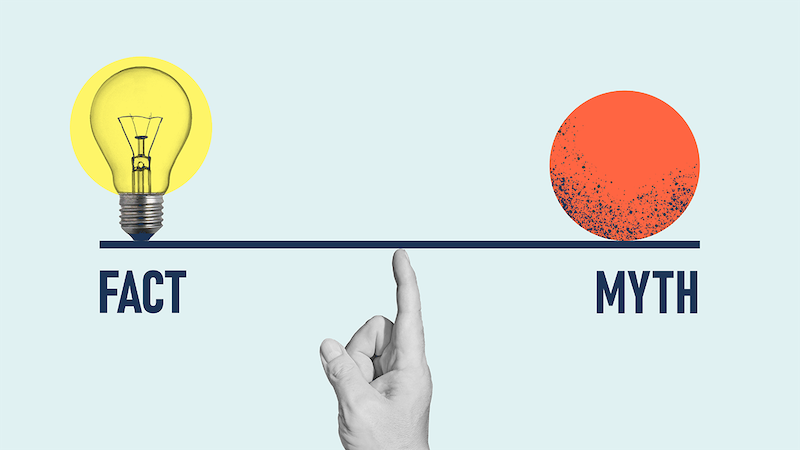
1. Myth: Your employer owns your HSA.
Truth: Your HSA is entirely under your ownership. While your employer typically offers the high deductible (low premium) plan that pairs with your HSA and selects the HSA provider, the HSA itself belongs solely to you. The funds in your HSA can be utilized, saved, or invested according to your preference. Moreover, even if you switch employers, your HSA stays with you.
2. Myth: FSAs and HSAs operate the same way.
Truth: The “S” in FSA represents “spending,” while in HSA, it stands for “saving.” In essence, FSA funds must be expended on medical expenses by the year’s end, or they will be forfeited. On the other hand, HSA funds offer flexibility—they can be saved without any pressure to spend. These funds roll over year after year and can be invested to create a financial asset for covering medical expenses well into retirement.
3. Myth: HSA contributions are restricted to payroll deductions.
Truth: Although contributing to your HSA through payroll deductions provides tax advantages, you can also contribute from your personal funds. However, these personal contributions won’t offer the same FICA tax savings as payroll contributions do. Contributing from your own pocket is a great option for anyone who didn’t maximize their HSA in the previous year. You have until the tax filing deadline each year to make contributions for the prior year.
4. Myth: HSAs are solely for doctor and hospital expenses.
Truth: HSAs can be utilized tax-free for a wide range of eligible medical expenses, extending beyond doctor’s visits and hospital charges. These expenses encompass copayments, deductibles, coinsurance, prescriptions, and even various medical supplies like vitamins and Band-Aids. While health insurance premiums typically don’t fall under HSA-eligible expenses, the IRS allows exceptions for premiums that fall under the following categories:
- COBRA premiums and other healthcare continuation coverage
- Medicare premiums
- Long-term care insurance (deduction limits based on age)
- Health insurance premiums paid while receiving unemployment benefits
5. Myth: HSAs are not worth being on a high-deductible health plan.
Truth: The term “high-deductible health plan” might sound daunting, but it offers long-term savings as you pay lower premiums. Meeting your deductible means you’re paying for actual received healthcare, whereas premiums cover future “what if” expenses. High-deductible health plans facilitate paying for immediate needs, ensuring efficient utilization of resources.
6. HSAs are tailored exclusively for healthy individuals.
Truth: Although HSAs are paired with HDHP (high-deductible health plans), they offer benefits for everyone. This dispels the notion that only the healthy gain from these plans —a myth that is frequently associated with HDHPs. Because HDHPs require patients to pay more out of pocket to reach their deductible than traditional low-deductible / high premium plans, some people believe that HSA + HDHP plans only really benefit those that rarely need healthcare procedures. This is false. It is important to remember that HDHPs consist of lower premiums (which save everyone money in the long run, regardless of health). Also, employers often contribute to employees’ HSAs, making them a great resource for health savings and can be used for potentially high medical costs.
7. Myth: You lose your HSA money if you don’t use it.
Truth: HSA funds roll over from year to year, transfer with you from one employer to the next, and can even be invested!
8. Myth: If you have an HSA card you need to use it for medical expenses.
Truth: While HSA funds can be withdrawn tax-free for qualified medical expenses, there’s no obligation to do so. If you prefer using your HSA as a retirement savings vehicle, you’re free to accumulate savings over time. You can choose to pay medical expenses out of pocket if that aligns with your strategy.
9. Myth: Having an HSA affects your coverage.
Truth: An HSA doesn’t influence your insurance coverage. Once your annual deductible is met, your coverage is activated, whether or not you have an HSA. In fact, your HSA funds can be used to help you reach your yearly deductible, making financial costs less of a burden. HSA funds also offer valuable resources such as a triple tax advantage: tax-free contributions, growth, and withdrawals. However, note that contributing to an HSA requires you to have a high-deductible health plan.
10. Myth: “I’m too old for an HSA. It’s not worthwhile.”
Truth: HSAs benefit individuals of all ages and are particularly advantageous for retirement planning. Even at an older age, saving through an HSA is valuable. It’s better to have something saved up than nothing. Individuals aged 55 or older can make additional “catch-up” contributions annually until age 65. Note that retirees on Medicare can no longer contribute to an HSA.
Sources:
“5 Myths about Health Savings Accounts”
Further by HealthEquity
“5 Myths about HSAs”
HealthEquity
“Top 5 Misconceptions about HSAs and FSAs – And What to Say to Correct Them”
Advantage Administrators
“Top 10 Myths and Misconceptions about Health Savings Accounts”
Kelley Long and Karin M. Rettger
